Barbiere di Siviglia
BARBIERE DI SIVIGLIA
G. ROSSINI
BOSTON LYRIC OPERA – BOSTON SEPTEMBER 2018
Conductor DAVID ANGUS
Director ROSETTA CUCCHI
Photo by Lisa Voll
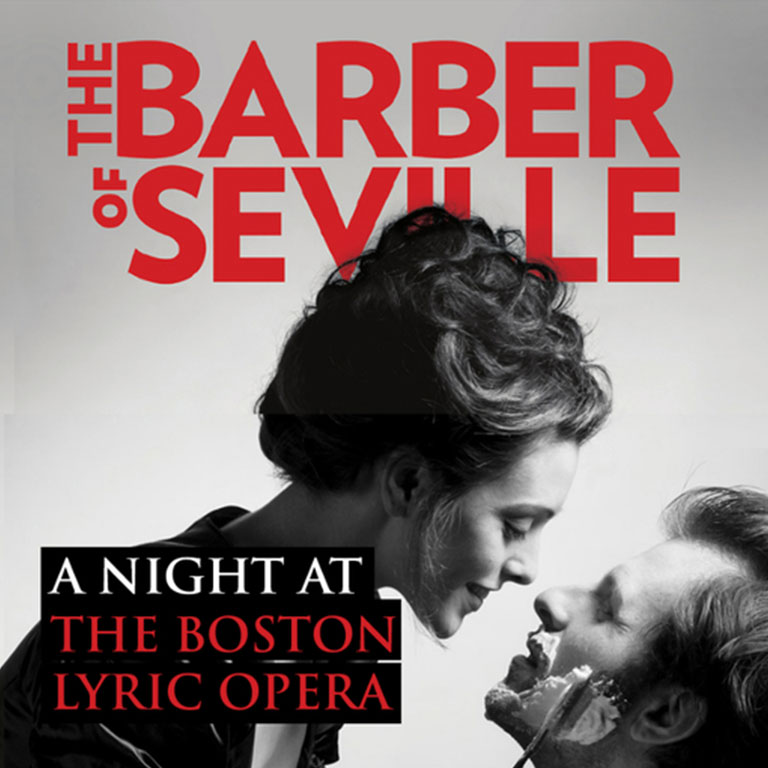
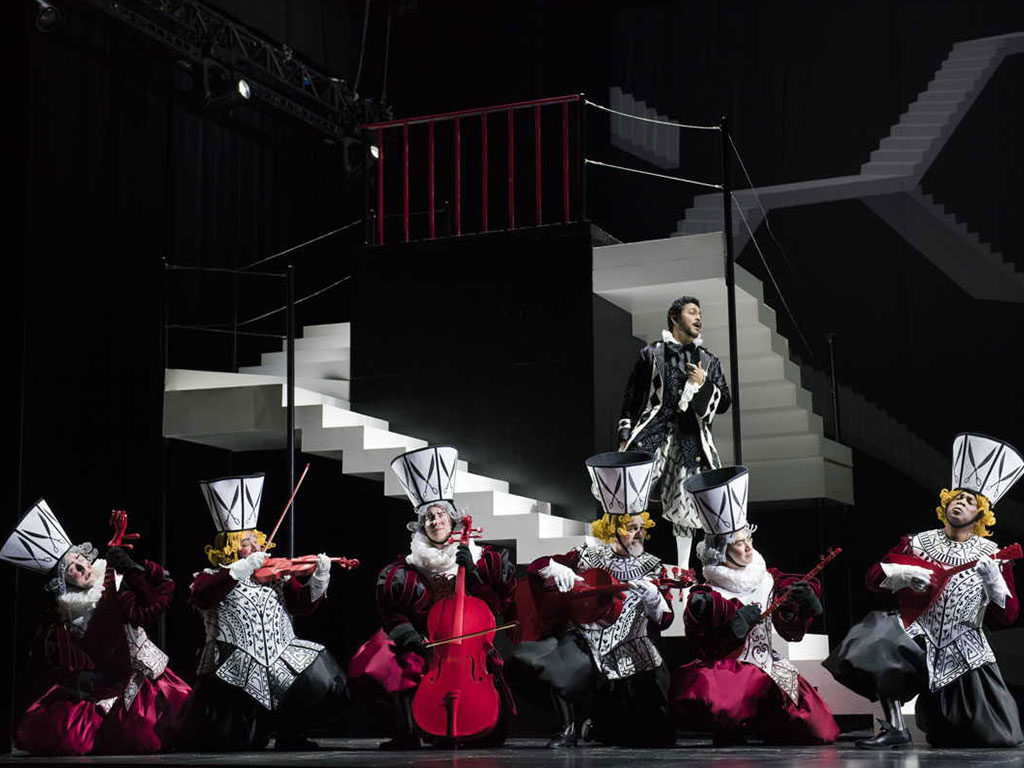
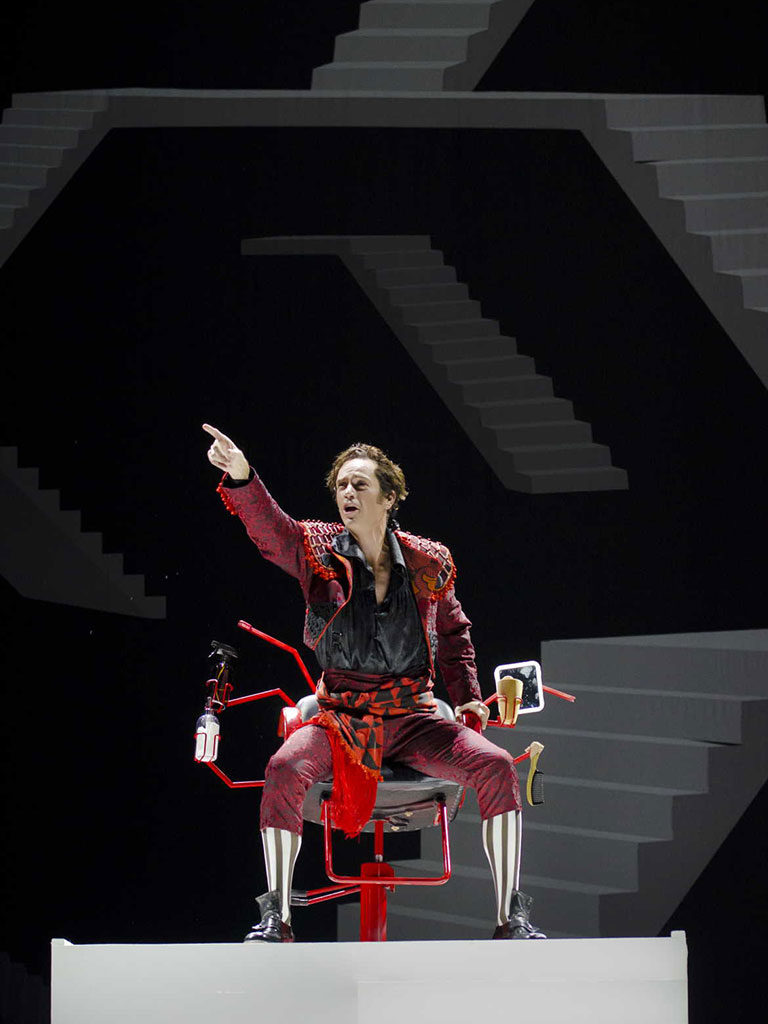
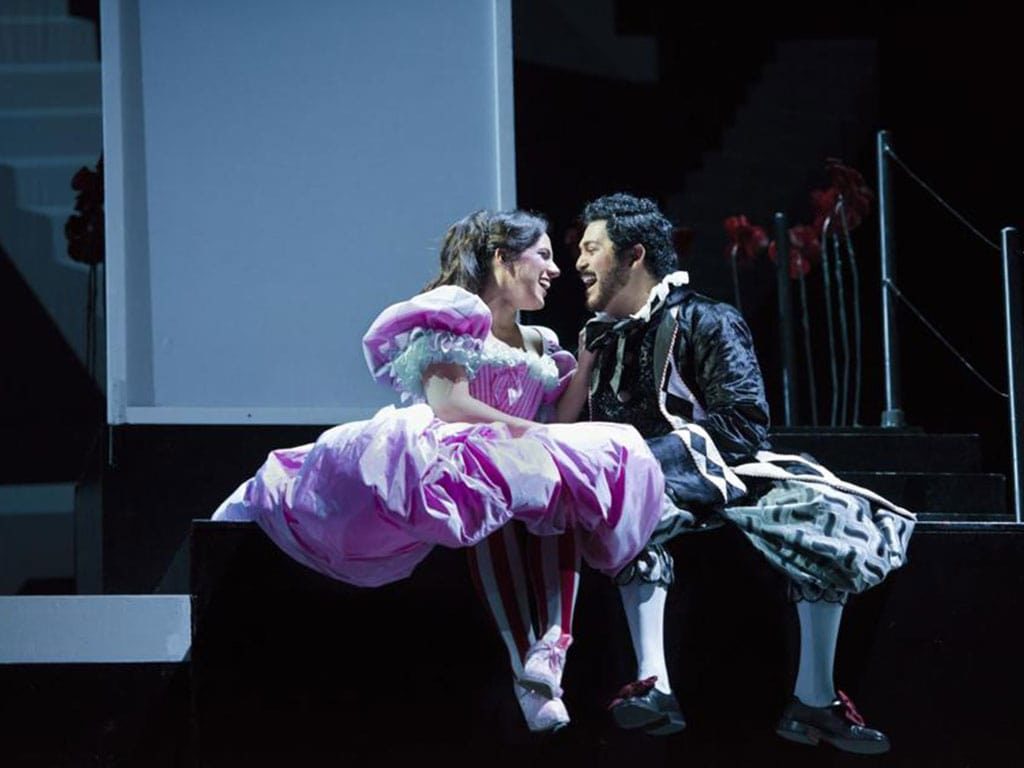
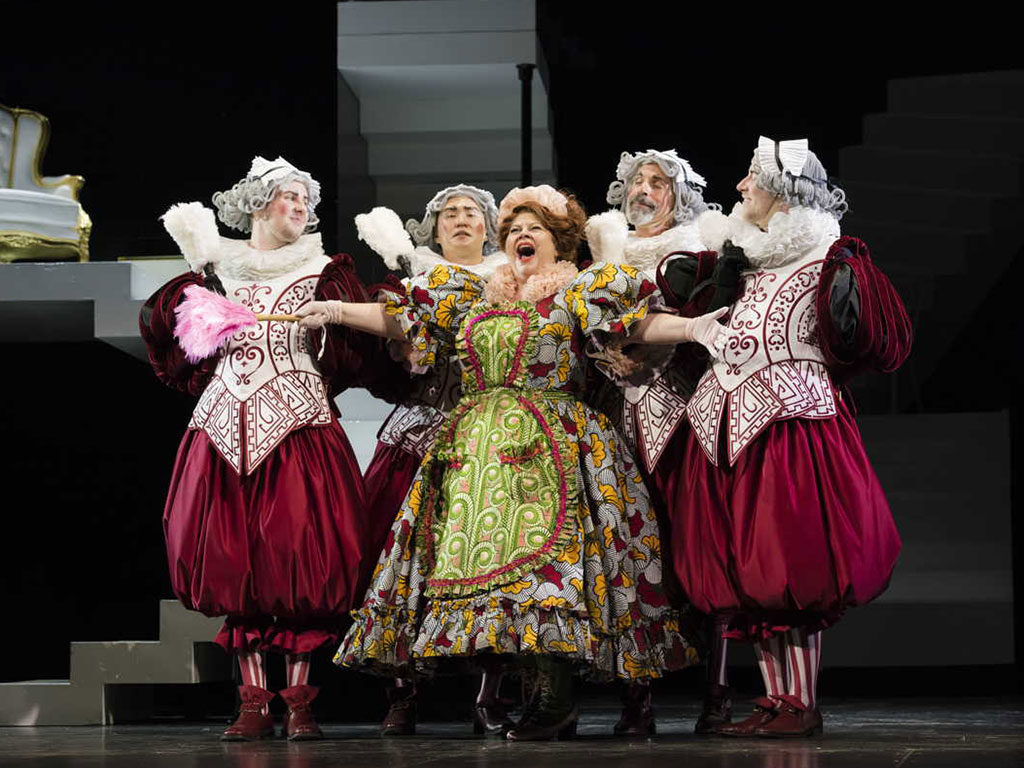
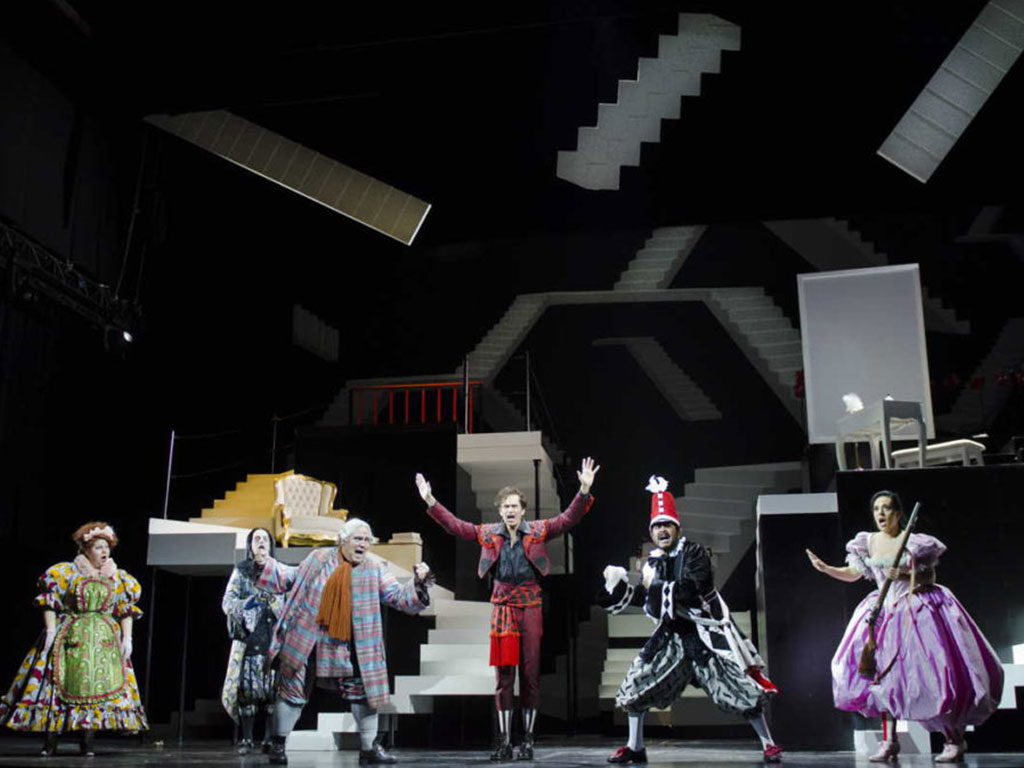
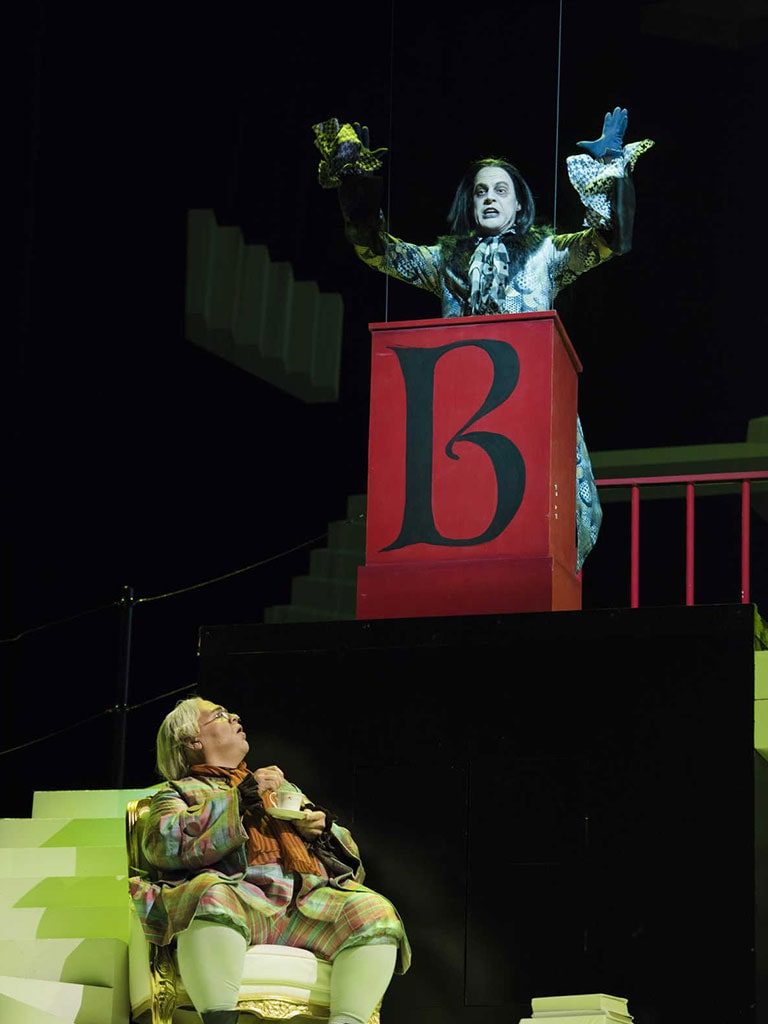
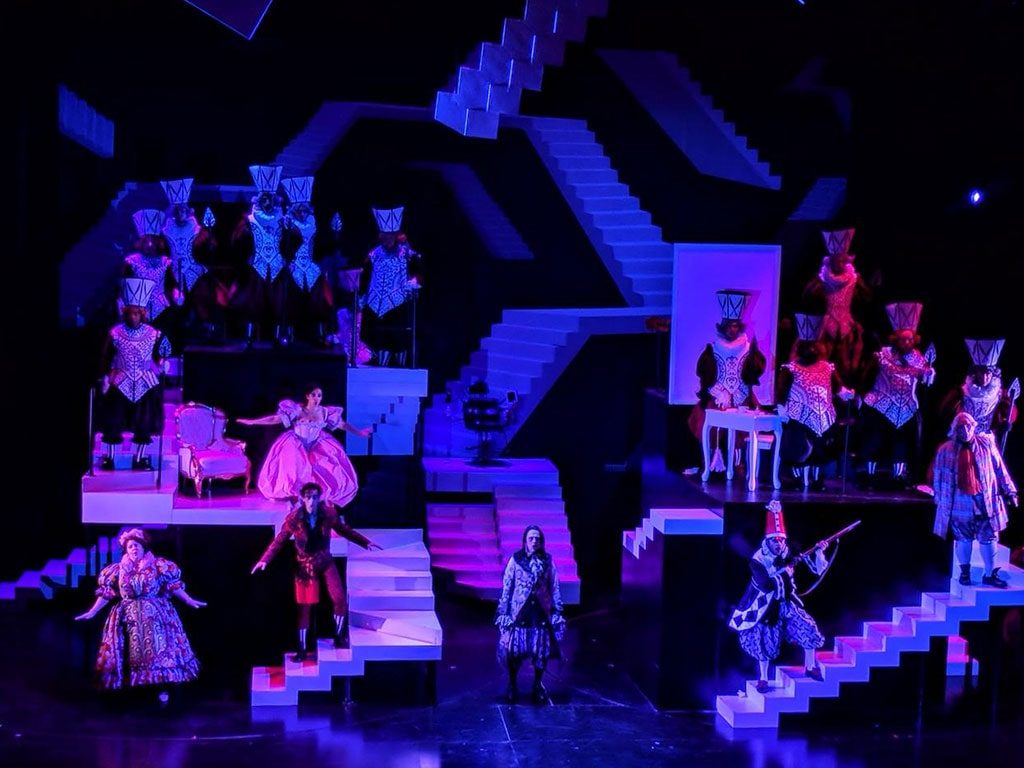
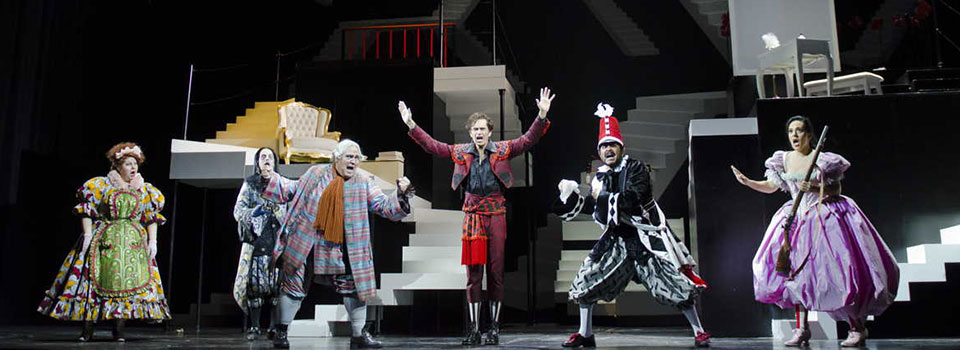
With sprightly ‘Barber of Seville,’ Boston Lyric Opera sends in the clowns. Cucchi has previously directed a 1960s Parisian “La Bohème” and a metatheatrical “The Marriage of Figaro” for the BLO, and with this “Barber” she has found directorial equilibrium…
The heavily stylized production and clever staging (as well as the cast’s dedicated clowning) contributed amusement.. “Boston globe” Zoë Madonna
The Boston Lyric Opera is fortunate in having cultivated an artistic partnership between Music Director David Angus and Stage Director Rosetta Cucchi who have directed five operas together… she has directed so with a sure hand, coordinating a team of designers who are all on the same wacky, whimsically-oriented page. Let me begin with the spectacle: an Escher-like black, gray and white set by Julia Noulin-Merat. It is a bold and pleasing mix of geometric patterns, stairs and ladders against and on which the cast, costumed in vivid shades of pink, red, maroon, and florid prints scurries, struts and poses, sometimes behind a screen that offers up a series of stylized silhouettes. The singers not only sing, but are persuasive actors who romp nimbly up and down the set of this luscious production.
Every performance of opera should leave an audience so exhilarated. Hats off to the BLO! “The Arts fuse” Helen Epstein
Rosetta Cucchi’s stage direction ensures that neither sets nor attire get in the way of the opera’s action… Cucchi’s production is lean and filled with laugh-out-loud moments. Indeed, for slapstick, this Barber has enough gags to fill out a Marx Brothers film – and the way the narrative ties up its loose ends is reminiscent of Seinfeld at its best.
“Boston classic review” Jonathan Blumhofer
It is also apparent that Cucchi knows Barbiere’s story incredibly well almost exclusively from how she directs her singers’ Italian diction. Where most productions would treat the recitative sections as an afterthought, here they are overflowing with character and comedy just from the myriad ways that the singers’ Italian stretched and pattered and inflected in every which direction. It is not unreasonable to expect that Cucchi may be partly responsible for this, as I have never heard the Italian language used in such a specific way in any other production of any Italian opera, never mind Barbiere: let it be said that the audience should be immensely thankful for such attention to detail in the Italian, because the use of the Italian itself tied the whole production together in the end. “Shmopera” Arturo Fernandez
Rosetta Cucchi brought it all together, calling for constant motion on stage, emulating the energetic flow of the score. She was particularly clever in leveraging the quirks of the crowded, multilevel set, especially in her skillful placement of singers in ensemble numbers that allowed each voice to be heard both individually and as part of the group. “The Boston musical intelligencer” Tom Schnauber





